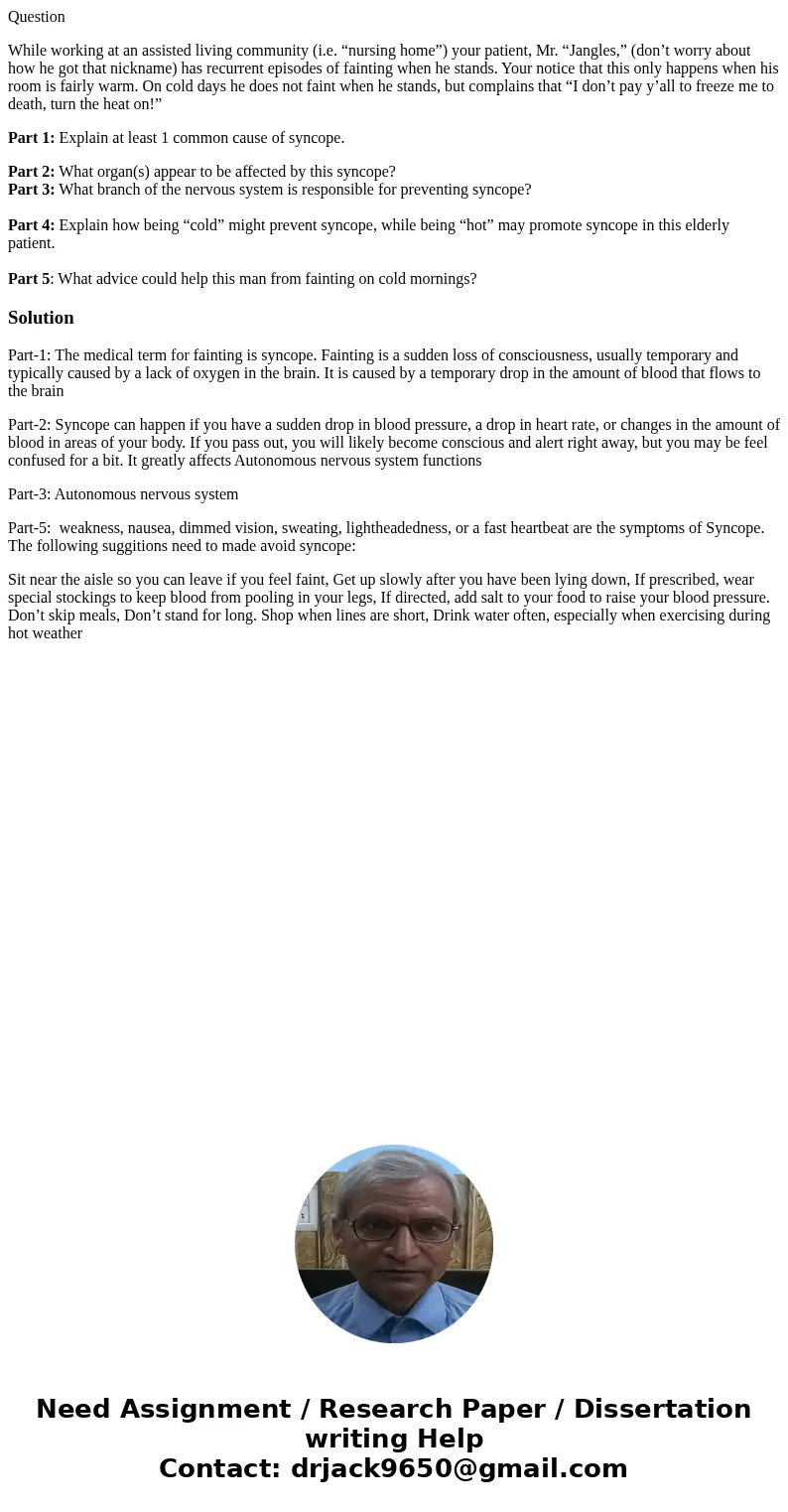Question While working at an assisted living community ie nu
Question
While working at an assisted living community (i.e. “nursing home”) your patient, Mr. “Jangles,” (don’t worry about how he got that nickname) has recurrent episodes of fainting when he stands. Your notice that this only happens when his room is fairly warm. On cold days he does not faint when he stands, but complains that “I don’t pay y’all to freeze me to death, turn the heat on!”
Part 1: Explain at least 1 common cause of syncope.
Part 2: What organ(s) appear to be affected by this syncope?
Part 3: What branch of the nervous system is responsible for preventing syncope?
Part 4: Explain how being “cold” might prevent syncope, while being “hot” may promote syncope in this elderly patient.
Part 5: What advice could help this man from fainting on cold mornings?
Solution
Part-1: The medical term for fainting is syncope. Fainting is a sudden loss of consciousness, usually temporary and typically caused by a lack of oxygen in the brain. It is caused by a temporary drop in the amount of blood that flows to the brain
Part-2: Syncope can happen if you have a sudden drop in blood pressure, a drop in heart rate, or changes in the amount of blood in areas of your body. If you pass out, you will likely become conscious and alert right away, but you may be feel confused for a bit. It greatly affects Autonomous nervous system functions
Part-3: Autonomous nervous system
Part-5: weakness, nausea, dimmed vision, sweating, lightheadedness, or a fast heartbeat are the symptoms of Syncope. The following suggitions need to made avoid syncope:
Sit near the aisle so you can leave if you feel faint, Get up slowly after you have been lying down, If prescribed, wear special stockings to keep blood from pooling in your legs, If directed, add salt to your food to raise your blood pressure. Don’t skip meals, Don’t stand for long. Shop when lines are short, Drink water often, especially when exercising during hot weather

 Homework Sourse
Homework Sourse